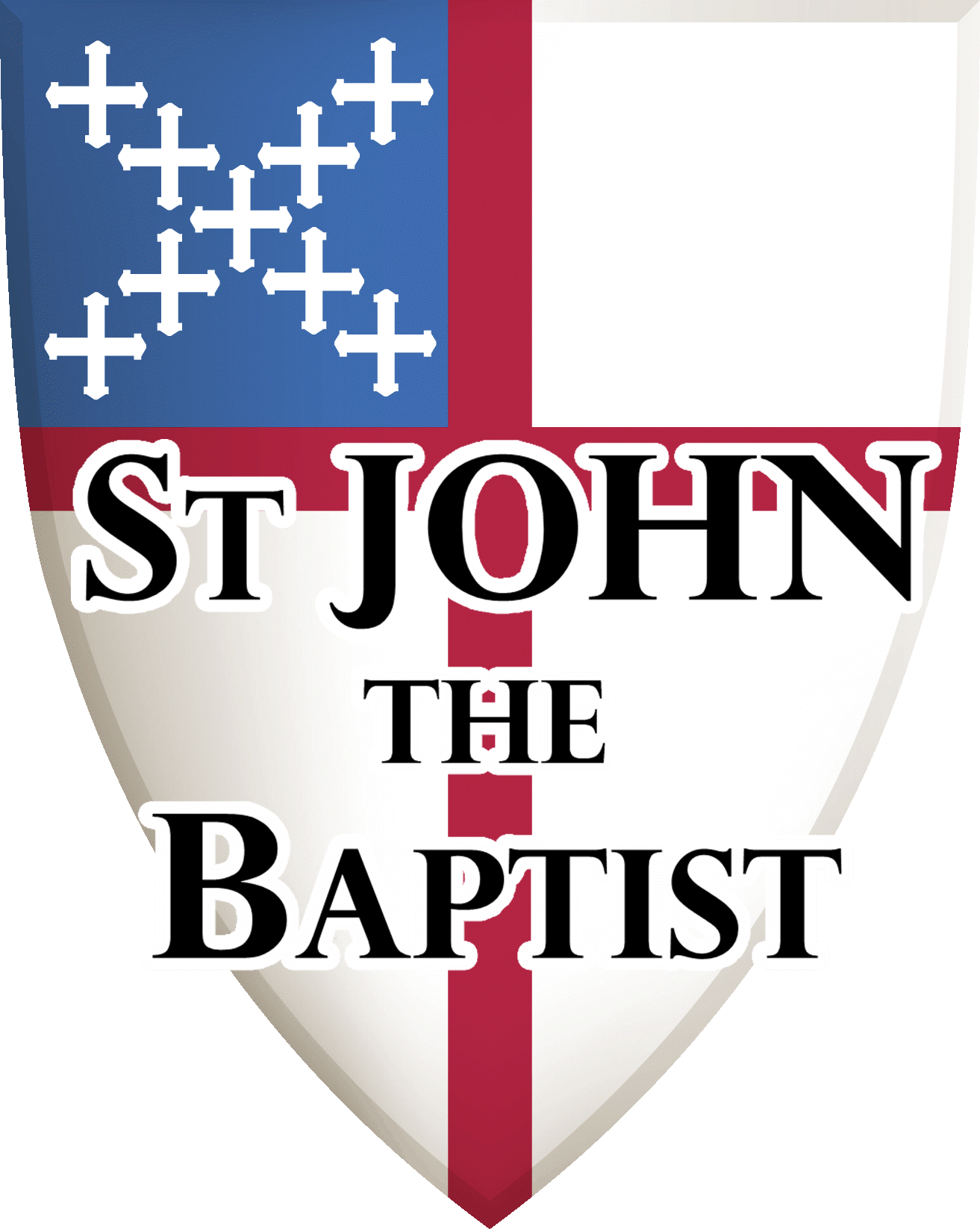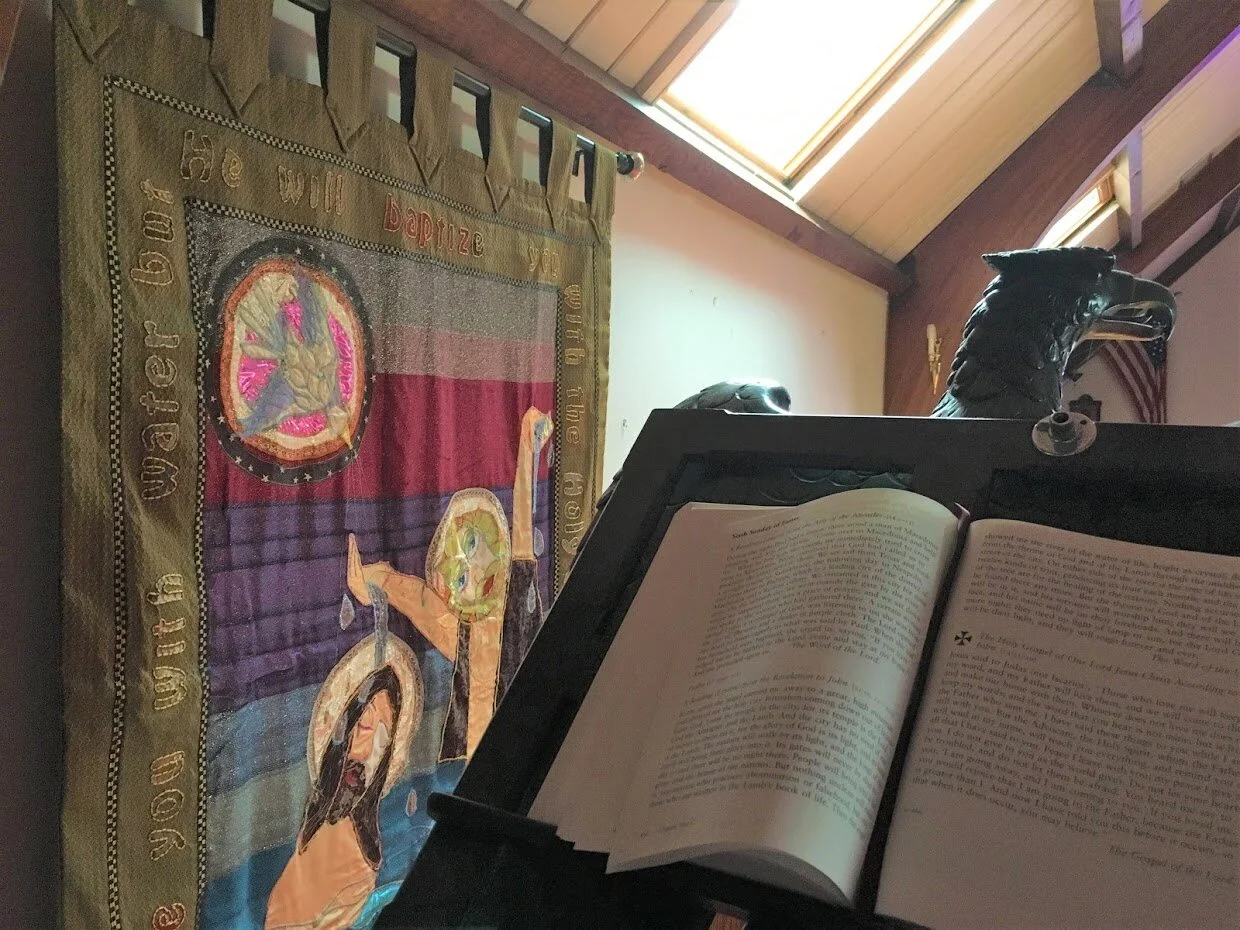Finding Ourselves in a Challenging Story
A Sermon by the Rev. Peter De Franco July 11, 2021
Mark 6:14-29
14King Herod heard of it, for Jesus’ name had become known. Some were saying, “John the baptizer has been raised from the dead; and for this reason these powers are at work in him.” 15But others said, “It is Elijah.” And others said, “It is a prophet, like one of the prophets of old.” 16But when Herod heard of it, he said, “John, whom I beheaded, has been raised.” 17For Herod himself had sent men who arrested John, bound him, and put him in prison on account of Herodias, his brother Philip’s wife, because Herod had married her. 18For John had been telling Herod, “It is not lawful for you to have your brother’s wife.” 19And Herodias had a grudge against him, and wanted to kill him. But she could not, 20for Herod feared John, knowing that he was a righteous and holy man, and he protected him. When he heard him, he was greatly perplexed; and yet he liked to listen to him. 21But an opportunity came when Herod on his birthday gave a banquet for his courtiers and officers and for the leaders of Galilee. 22When his daughter Herodias came in and danced, she pleased Herod and his guests; and the king said to the girl, “Ask me for whatever you wish, and I will give it.” 23And he solemnly swore to her, “Whatever you ask me, I will give you, even half of my kingdom.” 24She went out and said to her mother, “What should I ask for?” She replied, “The head of John the baptizer.” 25Immediately she rushed back to the king and requested, “I want you to give me at once the head of John the Baptist on a platter.” 26The king was deeply grieved; yet out of regard for his oaths and for the guests, he did not want to refuse her. 27Immediately the king sent a soldier of the guard with orders to bring John’s head. He went and beheaded him in the prison, 28brought his head on a platter, and gave it to the girl. Then the girl gave it to her mother. 29When his disciples heard about it, they came and took his body, and laid it in a tomb.
Every episode from the bible comes with an invitation to find ourselves in the story. Sometimes we can easily identify with persons whom we admire: the young hero David who battles Goliath or the faithful women who stand with the dying Jesus. Some clever biblical commentator calls this pattern Disney princess theology, when we find the princess and identify with her. All of us can see ourselves as the nurturing Martha caring for the hungry Jesus but none of us with the angry King Herod. For all of us, today’s Gospel story of the martyrdom of John the Baptist challenges us if we engage in a Disney Princess theology for most of the characters in this story resemble not Cinderella but Cruella D’Ville. Though some of us might secretly admire Cruella, if only for her outstanding wardrobe, we are given a deeper call. So let’s take a look at the cast of characters in today’s Gospel story and see where God leads your heart.
John emerges as the hero of the story, a hero very difficult to imitate. Most of us would be very uncomfortable wearing that camel skin tunic, not because it was not lined with silk but because speaking a prophetic word makes most of us uncomfortable. The thought of talking about our faith leaves most of us mute and speaking a challenging word is totally impossible.
Next come the villains: Herod, Herodias and her daughter, and the guests at the birthday party. From the get go, Herod identifies himself as John’s executioner. Herod was captivated by John’s preaching even as he was challenged by John. John the Baptist challenged Herod for marrying Herodias, the wife of Herod’s brother Philip. Herod arrests and imprisons John but shields him from Herodias who wants to silence John by executing him. Herod is somebody who hears the word from John but the seed of God’s word cannot grow in his heart, a heart overgrown by cares of what others think about him.
Herodias introduces greater complexity to the story. As a woman in a male dominated society, she works around the edges to discover her power and find ways to exercise it. Deprived of overt power, she finds her moment, collaborates with her daughter and dupes Herod who buckles under the threat of peer pressure to kill John. Herodias and her daughter represent the resistance to the Word of God when it challenges our behavior.
We should not forget the persons attending Herod’s birthday party, the silent witnesses who could have tipped the power balance and shifted Herod’s predicament toward a graceful shift away from his oath. These men and women know that they control the pressure Herod feels about his misspoken oath.These people with power determine if they will invite him to reconsider his pledge or demand that he follows it. Their silence shows their complicity in John’s death.
In accessing guilt for John’s death, we can see Herodias’ anger finds an occasion to manipulate Herod whose course of action is not challenged by the leaders who witness his ill fated oath. So where are you in the story?
Most of us would dare not imagine ourselves as John the Baptist, especially with the brutal ending of this gospel. Yet most of us would not want to imagine ourselves as the villains Herod, Herodias, her daughter or the silent guests. What if we find a bit of ourselves in all of the characters?
Like John the Baptist, all of us are called to speak the Word of God, when convenient and inconvenient. Perhaps we find ourselves caught in the conflict over what to do with the Word of God which we hear. Perhaps more of us are like Herod, willing to listen to the Word of God, but, when the time of conflict comes, we buckle under the pressure we feel from others. Perhaps we find ourselves like Herodias, feeling powerless in our society and looking for ways to regain that power, at whatever cost.
As we continue with our worship, try to discover the different characters from this story in your heart. As we continue, try to restore in your heart the conflict embroiling those characters. God calls you to be John the Baptist, to enter into a prophetic ministry through this story, a ministry with its challenges, a ministry with its difficulties, a ministry with its ability to change you. Yes, we are afraid of that call, and the Herod and Herodias within us may inhibit our courage. God not only calls you. God strengthens you to follow the call. Let John the Baptist come alive through you.









